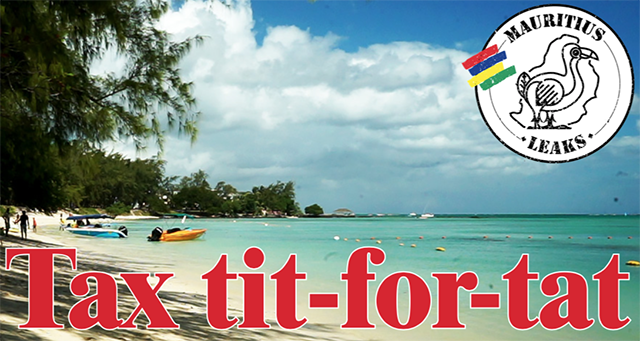By Lazarus Amukeshe and Shinovene Immanuel | 23 June 2019
NAMIBIA wants to renegotiate tax agreements with 11 countries to tighten loopholes that allow companies and the rich to avoid taxes, conceal their riches, and engage in crimes such as money laundering.
The government has said it aims to conclude talks with Mauritius – a notorious tax haven – by the end of this year.
The tax agreements – commonly called double taxation treaties – exist to allow companies operating in two countries to avoid being taxed in both locations.
Government officials, academics and civil society, however, argue that tax treaties, especially those signed with a tax haven, allow companies not to pay tax at all.
Mauritius, for example, allows multinationals to route investments through “resident” shell companies, which pay an effective corporate income tax rate of 3% or less.
This arrangement allows companies to avoid paying higher taxes in other countries such as Namibia, which has an average 30% corporate tax rate.
Under the tax treaty signed between Namibia and Mauritius in 1995, multinationals which use shell companies in Mauritius can pay less to the Namibian government on a range of transactions, including taxes on royalties, dividends and management fees.
Namibia hardly trades with Mauritius, but statistics from the International Monetary Fund show that companies are increasingly using Mauritius to channel money into Namibia.
For instance, N$5,5 billion of the N$115 billion foreign direct investments pumped into Namibia in 2017 came from Mauritius – an island smaller than the municipal size of Windhoek.
Finance minister Calle Schlettwein told The Namibian last month that an assessment will be done on the status and progress of renegotiating the 11 tax treaties that Namibia has with Sweden, Germany, the United Kingdom, France, Russia, South Africa, Malaysia, India, Botswana, Romania and Mauritius.
“In the event that consensus cannot be reached with a country to adjust the existing treaty, and the ministry establishes that the continuation of a specific treaty will have dire consequences on Namibia, we may have to consider terminating the treaty,” he stated.
The Namibian reported last year that the government lost N$219 million in taxes from the sale of shares in one of the world’s largest uranium mines, Langer Heinrich, because the country’s tax avoidance law is not up to scratch.
Paladin Energy sold its stake in the Langer Heinrich mine to the China National Nuclear Corporation for about N$2 billion in a deal facilitated through a Mauritius-registered company. The finance ministry is investigating this case.
Last week, two Namibian fishing companies approached the High Court to block their Icelandic business partners from selling a fishing vessel worth N$400 million that they jointly own.
The Namibian partners bought the vessel with Iceland fishing group Samherji HF through a Mauritian company.
TIT FOR TAX
Double tax treaties are intended to ensure that multinational corporations are not taxed on the same income twice.
But every year, the world’s poorest countries lose billions of dollars as those firms use treaties and other loopholes to route money through shell companies in tax havens.
There is no universal definition of a “tax haven.” In general, however, a tax haven has very low or no tax, and is used by companies to avoid paying tax.
Tax havens are secretive, and do not publicly or easily provide information about taxpayers based in those countries.
Schlettwein’s comments come at a time that an international collaboration called Mauritius Leaks launched a cross-border investigation into how one law firm in Mauritius helped companies leach tax revenue from poor African, Arab and Asian nations.
Led by the International Consortium of Investigative Journalists, the investigation is a collaboration by 54 journalists in 18 countries. The Namibian is part of the investigation.
More than 200 000 documents from the Mauritius office of a prestigious offshore law firm, Conyers Dill & Pearman, are at the heart of the investigation.
The documents offer a rare window into corporate tax avoidance in countries in Africa, the Middle East and Asia.
The documents include emails, contracts and business plans provided by some of the world’s biggest players in finance and law, including KPMG.
Documents from Mauritius Leaks include companies with operations in Namibia which use Mauritius to sell computer mapping software, and explore for manganese.
“Mauritius is a bit like the Luxembourg of Africa,” said Tove Ryding, policy and advocacy manager for tax justice at the European Network on Debt and Development.
SHADOWY ISLAND
Mauritius rejects criticism of its role as a tax revenue haven, but it has responded to increased pressure and introduced stricter rules to prevent tax abuse.
Schlettwein said Namibia is concerned about the abuse of the tax treaty with Mauritius that has been in place for more than 20 years after being signed by then finance minister Gert Hanekom in 1995.
“This concern still remains, since the Namibia-Mauritius tax treaty creates opportunities for tax planning for certain items such as dividends, interest, licences, etc. This creates a distortion in the tax system,” the minister stressed.
He said Mauritius authorities were officially requested to submit information on questionable tax transactions.
“Multinational entities and individuals with affiliates in Mauritius are under the microscope. Some of these cases have been reported in the media as well, and have been under investigation in the Ministry of Finance,” Schlettwein added.
He further said: “In the event that the ministry does confirm treaty abuse, the taxpayer, whether a company or natural person, will be denied the relief provided under the treaty, and penalised”.
The finance ministry promised to chase the tax through the state-owned Namibia Revenue Agency, which is yet to be operational.
Schlettwein said there is an assumption that the playing field is level when it comes to the benefits from these agreements.
“Global tax benefits are not the reality, and the benefits accrued are mostly in favour of the developed country partners. Secondly, the developed economies unilaterally determine international policies and best practices relevant to double taxation agreements, and hence often overlook and ignore the interests of developing economies,” noted the minister.
“Dispute resolution measures contained in the agreements do not accept the Namibian jurisdiction, and insist that their jurisdictions are the ones in which disputes are resolved. That makes the process prohibitively expensive, and that in itself is serious bias”, he continued.
Tax Justice Network Africa executive Alvin Mosioma last month warned African countries to get their tax rules in order.
“What Mauritius is providing is not a gateway but a getaway car for unscrupulous corporations dodging their tax obligations,” Mosioma said.
* This article was supported by the International Consortium of Investigative Journalists (ICIJ).






